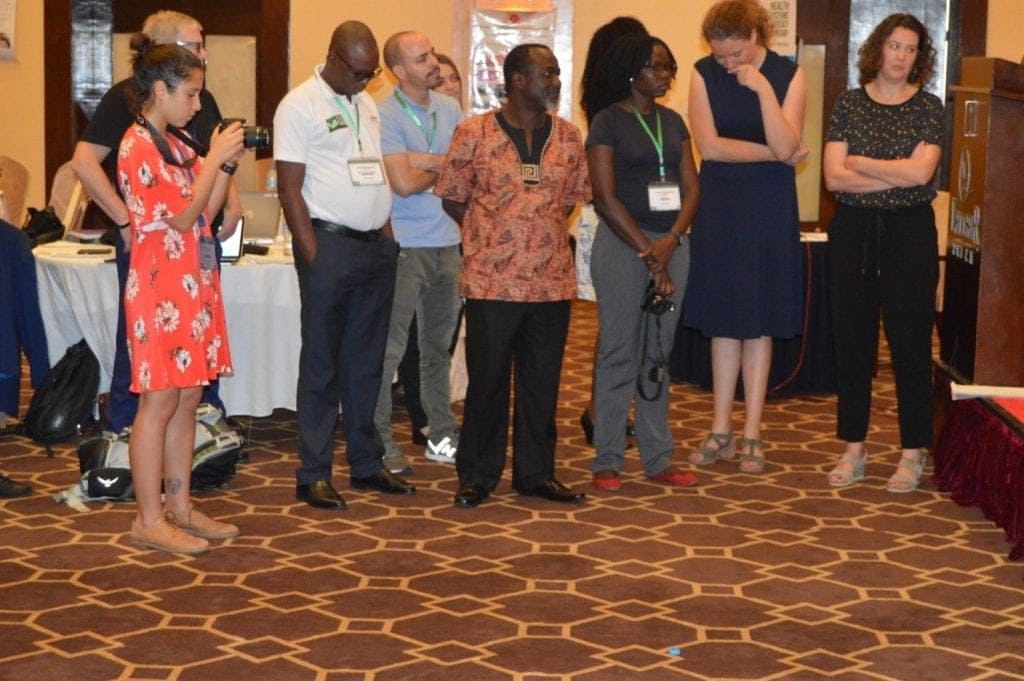When moving on to a new adventure, it is natural to look back on all the steps you have made to bring you to where you are now.
At the end of this week, I will be leaving my position as communications advisor at HAI to pursue my master’s degree in Epidemiology at Utrecht University. Although I am anxious to begin, I truly believe that the thing that most prepared me for this next step was the year I spent working at HAI.
On day one, I knew what I was getting into when our communications manager gave me a 110 page communications guide to edit and format, using a software which I had never used before. Three months later, I would be on a plane to Dar es Salaam nervously re-reading that same guide to help me prepare for a presentation I was about to give on storytelling at the Health Systems Advocacy Partnership Joint Action Planning Meeting. Only a few months after that, I would be at the World Health Assembly in Geneva— running on complimentary croissants and the never-ending enthusiasm of my manager, Alex— busily preparing for a side event that I was managing, and delivering a statement in front of over 100 delegations.

What more could I possibly ask for from a first job out of college? Although nothing can prepare a person for the inevitable panic that is to come during exam season, the confidence and practical experience I have gained since starting here will undoubtedly drive me to be successful in my masters and beyond.
In my motivational letter to Utrecht University in December, I wrote the following:
“This position has allowed me to understand the policy decisions and anthropological limitations to controlling health crises, which would allow me to make more realistic and well-informed inferences about what factors may be rate-determining steps in disease spread.”
If I could rewrite this statement, now 8 months later, I would say:
“This position has taught me that with world-class research, intelligent and well-informed policy recommendations and masterful communication, huge steps can be taken to impact the health and wellbeing of those impacted by health crises— even those that have been neglected for years.”